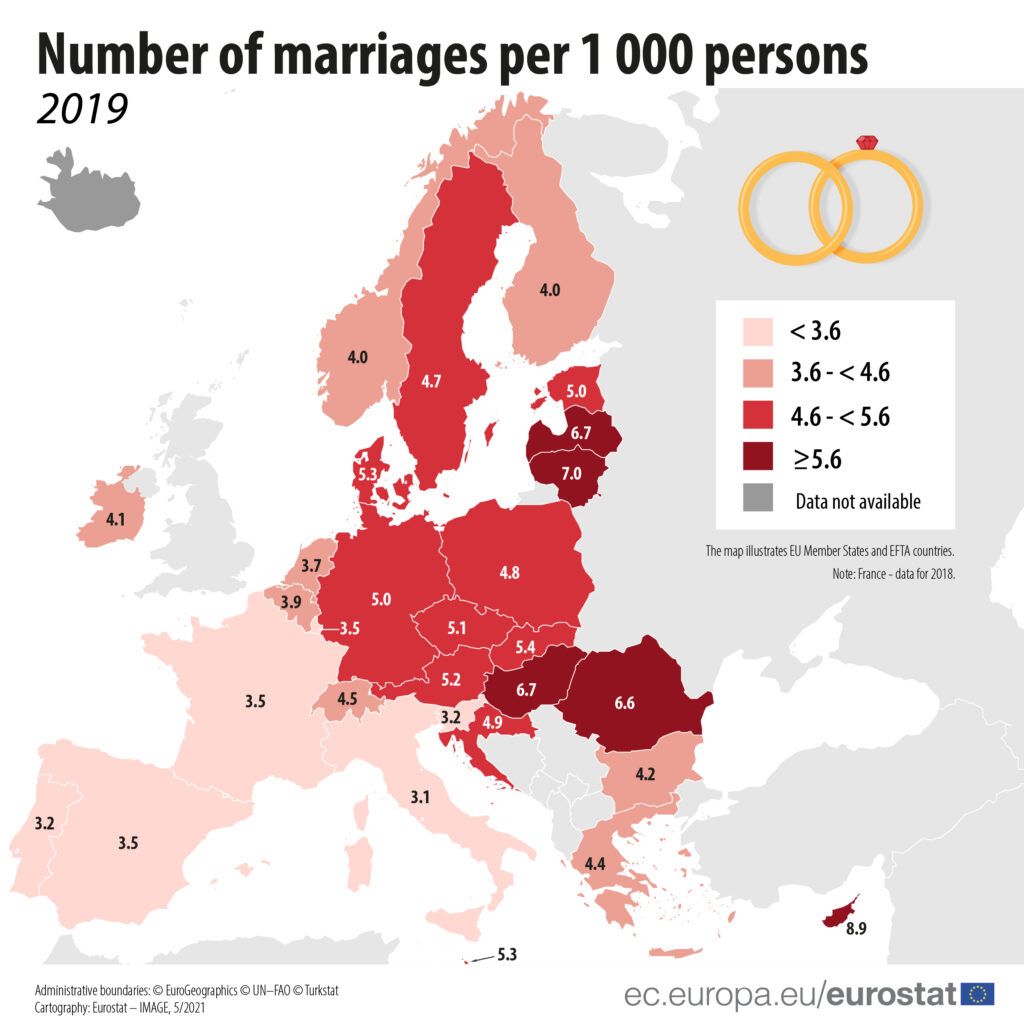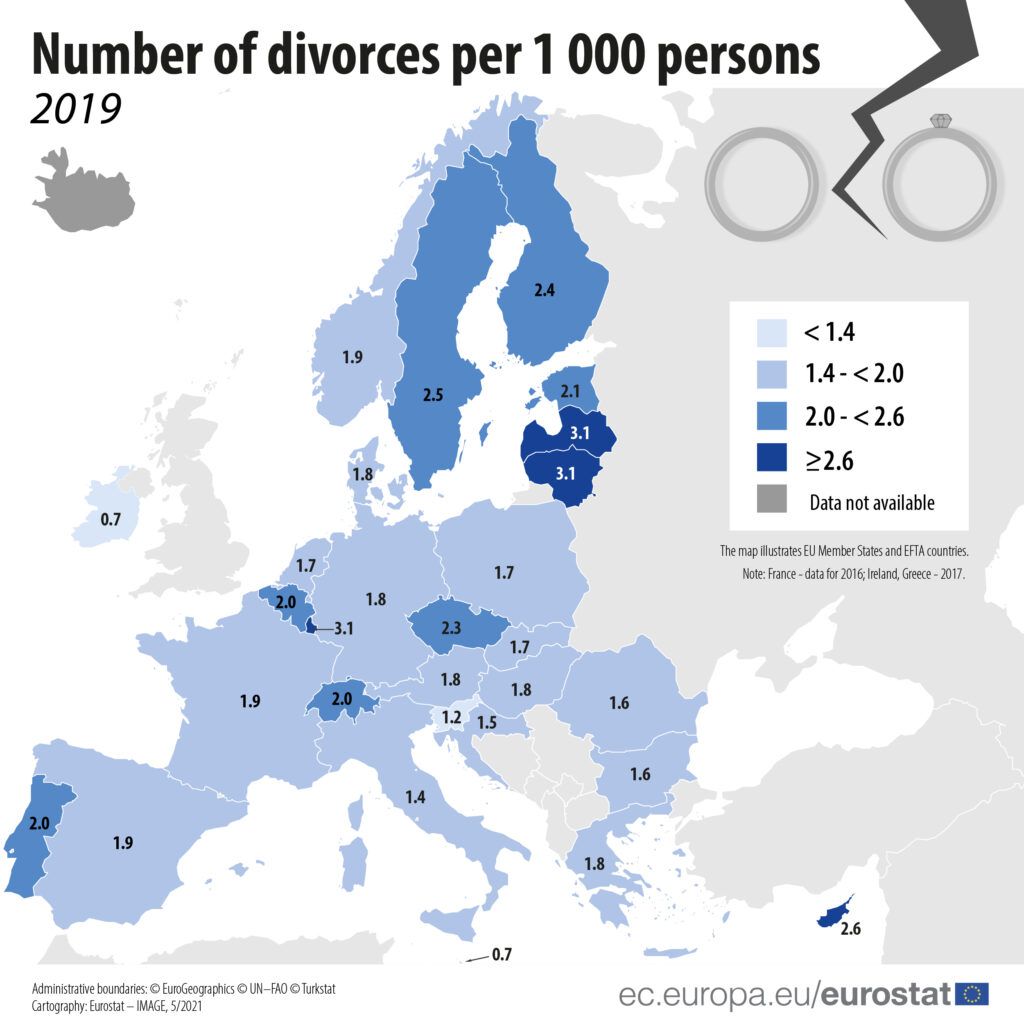The long-term trend in the European Union shows that the number of marriages is decreasing, while the number of divorces is increasing. Since 1964, the marriage rate in the EU has declined from 8.0 per 1 000 persons in 1964 to 4.3 in 2019. At the same time, the divorce rate has more than doubled, increasing from 0.8 per 1 000 persons in 1964 to 1.8 in 2019.
In 2019, the EU countries with the highest number of marriages relative to the population were Cyprus (8.9 marriages per 1 000 persons), Lithuania (7.0), Latvia and Hungary (both 6.7), and Romania (6.6). These were followed by Slovakia (5.4), Denmark and Malta (5.3).
In contrast, the lowest marriage rates were around 3 marriages per 1 000 inhabitants, which were reported in Italy (3.1), Portugal and Slovenia (both 3.2), followed by France, Spain, Luxembourg (all 3.5).
Source dataset: demo_nind
Lowest number of marriages break up in Malta and Ireland
In 2019, among EU Member States, the lowest number of divorces relative to the population was registered in Malta and Ireland (0.7 divorces per 1 000 persons), followed by Slovenia (1.2), Italy (1.4) and Croatia (1.5).
By contrast, the highest divorce rates were recorded in Latvia, Lithuania and Luxembourg (all 3.1 divorces per 1 000 persons), Cyprus (2.6) and Sweden (2.5).
Source dataset: demo_ndivind
For more information:
- The marriage rate used here is the crude marriage rate, defined as the ratio of the number of marriages during the year to the average population in that year. The value is expressed per 1 000 persons.
- The divorce rate used here is the crude divorce rate, defined as the ratio of the number of divorces during the year to the average population in that year. The value is expressed per 1 000 persons.
- Part of the increase in the divorce rate may be because in several EU Member States divorce was legalised during the 1964-2019 period (e.g. in Italy, Spain, Ireland and Malta).
- Take a look at the Statistics Explained article on Marriage and divorce statistics.
To contact us, please visit our User Support page.
For press queries, please contact our Media Support.









Leave a Reply